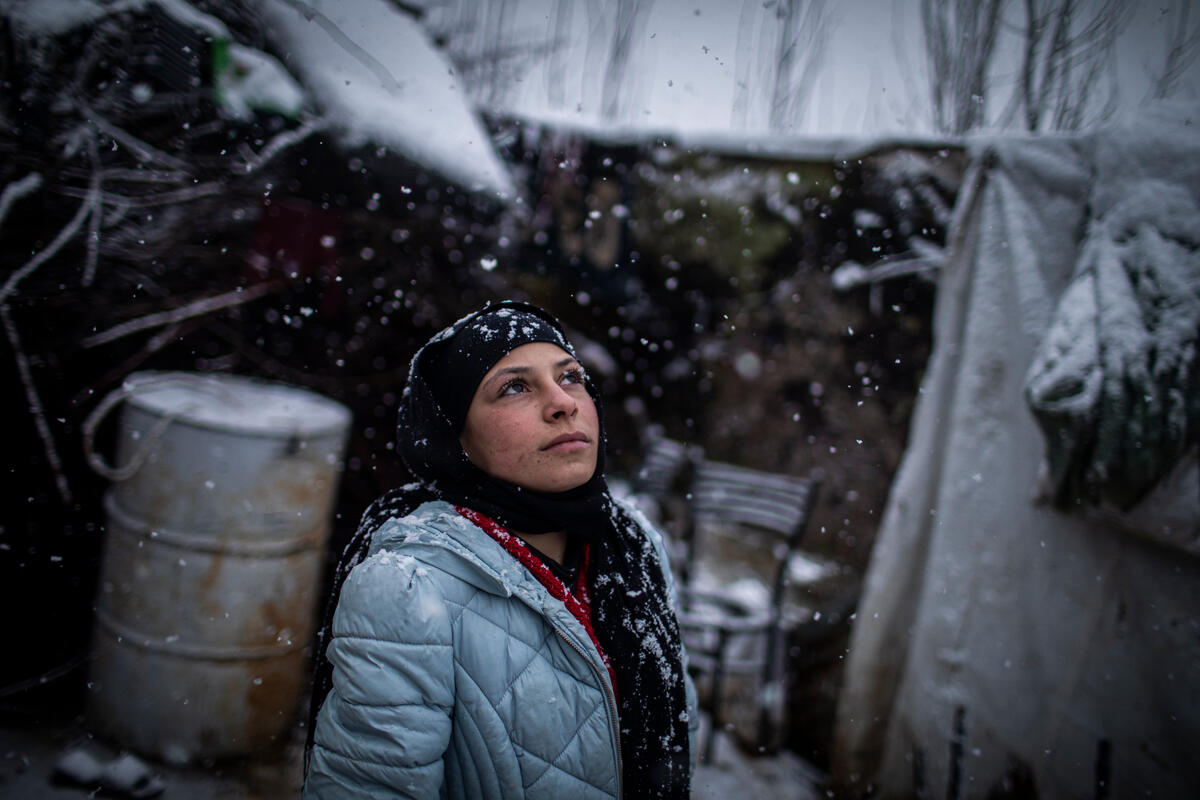Venezuelan jeweller defies disability to start over in exile
When she reached Ecuador, Venezuelan jeweller Stephanie set out to restart the successful jewellery business she ran in her home country – undaunted by her disability.
The 34-year-old mother of two lost her right arm in an accident more than a decade ago and learned to use her left hand so masterfully that she was able to tackle even the most intricate beadwork. (Stephanie’s father was also a jeweller, so she says she carries the craft “in the blood.”)
With seed money from HIAS, a non-for-profit organization that works with UNHCR, the UN Refugee Agency, Stephanie started Manex, a handmade jewellery manufacturer whose name is a mash-up of the Spanish words for “hands” and “foreign.”
“We have to constantly move forward and keep fighting.”
“We refugees don’t have the luxury of stopping – even those of us without a disability,” said Stephanie, whose family found refuge in Ecuador back in 2016, fleeing the targeted threats against them that followed the killing of her brother. “We have to constantly move forward and keep fighting to make the dreams and opportunities that we had back home come true elsewhere in the world.”
Like Stephanie, there are millions of refugees and asylum-seekers with disabilities around the world, although the precise number is not known. The most recent global data, which dates back to 2011, suggests that 15 per cent of the world’s population has some sort of disability. When applied to the estimated 79.5 million people who were forcibly displaced people in 2019, that would mean there are some 12 million displaced people with disabilities.
However, other studies have shown that many displaced people face much higher rates of disability than the general population. In fact, in places subject to chronic conflict, such as Afghanistan, more than half of displaced people are thought to have a disability, with women particularly affected.

While Stephanie is determined to make a success in her new life in Ecuador, she acknowledges she is again grappling with some of the same obstacles that she faced after losing her arm in a car crash while on her way to the hospital to give birth to her first child.
As an amputee, she had to grapple with being summarily dismissed, belittled and shut out until, little by little, she was able to prove all that she was capable of. When the family fled to Ecuador, she found herself back at square one.
“Having to leave my country meant having to face all … the discrimination I already went through on account of my disability, on top of gender discrimination and xenophobia,” said Stephanie, who had already experienced displacement once before. Born in Colombia, she and her family were forced to flee the armed conflict there when she was just seven, seeking safety in neighbouring Venezuela, where they eventually became naturalized citizens. “Adapting has been very hard.”
She says the experience of fleeing home as a person with a disability represents a double challenge – much like the one she faced in the aftermath of the accident.
“I had to deal with two pretty difficult things at the same time: becoming a first-time mother and becoming disabled,” said Stephanie, who had to learn how to hold and feed the baby and change diapers with a single hand – her left hand. (Prior to the crash, she had been right-handed).
“Having to leave my country meant having to face it all again.”
While the refugee population often faces challenges in securing such basics as a roof over their heads and access to employment, school and health care, people with disabilities face a virtual obstacle course of additional hurdles due, in large part, to societal attitudes. Displaced people with disabilities are often at heightened risk of discrimination, exploitation and violence, and even face barriers to accessing much-needed humanitarian assistance. Additionally, people with so-called “invisible” disabilities – those that are not easily identifiable at first sight, such as deafness and certain cognitive and psycho-social impairments – sometimes face even greater hurdles, experts say.
“The first step in easing the burden on displaced people with disabilities is recognition. UNHCR recognizes that persons with disabilities may face additional stigma and increased risks,” said Ricardo Pla Cordero, a protection officer with UNHCR who helps tailor the agency’s programmes and policies to meet the diverse needs of people with disabilities. “It is our responsibility to be aware of the barriers and to mitigate – if not completely remove – them.”
Stephanie sees her disability not only as a source of challenges but also of strengths.
Disabilities “on the one hand hurt you because they close off opportunities – to education, to good jobs and promotions,” she said, adding that “they also end up helping because the difficulties that we, as people with disabilities, face make us resourceful and allow us to create our own opportunities.”
While the coronavirus pandemic has thrown a monkey wrench into her business plan, Stephanie’s goal is one day be able to hire workers overlooked by many other employers – such as other people with disabilities and older people, as well as refugees – to showcase their often-ignored potential.“Finding a job isn’t easy when you’re disabled because people look at you and decide that you can’t do the job without even giving you a chance,” said Stephanie, who during the coronavirus pandemic and resulting cuts in spending on non-essentials like jewellery, has had to take on work selling fruits and vegetables and other sporadic day labour.
“The way I see it, having the attitude that ‘I can’t do it’ is the real disability,” said Stephanie. “If I can do it, so can you.”










